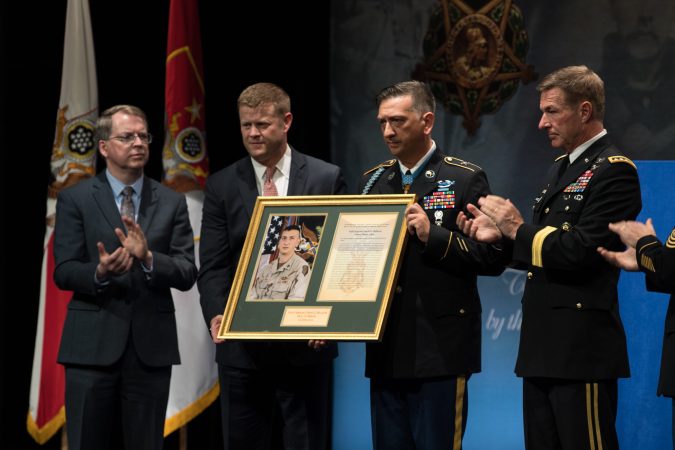Corporal Richard Allen Anderson was a member of the United States Marine Corps. He received a posthumous Medal of Honor for his service in Vietnam. He also earned the Purple Heart and the Combat Action Ribbon for his action.
Background
Born in Washington, D.C., on April 16, 1948, Anderson’s journey took a turn when his family moved to Houston, Texas, during his childhood. After graduating high school, where he was active in track and football, Anderson took his first step toward his dream of serving the nation. That’s when he enrolled at San Jacinto Junior College. But that wasn’t enough. Anderson’s heart yearned for a bigger purpose. So, in April of 1968, he mustered the courage and enlisted in the U.S. Marine Corps.

Anderson’s path wasn’t easy. He had to undergo the most challenging boot camp in San Diego, California. But, he came out of it strong and determined. Anderson’s dedication and commitment towards his service paid off. Soon he promoted to Private First Class after attending Sea Training. His unwavering spirit didn’t go unnoticed. Within months, he deployed to Southeast Asia as a member of Company E, 3D Reconnaissance Battalion, 3D Marine Division FMF.
Anderson’s bravery and leadership potential shone brightly in the battlefields of Southeast Asia. His superiors were quick to recognize his skills, and he was promoted to Lance Corporal in June of 1969. But that wasn’t the end of Anderson’s journey. In the summer of 1969, he found himself face to face with the enemy. His exceptional skills and unwavering courage earned him the Medal of Honor.

Medal of Honor Action
August 24, 1969, is a day that will forever be etched in the annals of American military history. Lance Corporal Anderson and his brothers in arms stationed near Vandegrift Combat Base in the Vietnamese province of Quang Tri were in for the fight of their lives. In the early morning hours, insurgents launched a savage assault on the American position. Anderson and his comrades were caught in the crossfire.
The enemy snipers, armed with automatic weapons and machine guns, had the upper hand. However, Anderson and his fellow Marines were not going down without a fight. The situation was dire, but Anderson’s spirit was unbreakable. The insurgents outnumbered the Americans, but they couldn’t match their courage and determination.
Amidst the chaos, a sniper hit Anderson in the leg, causing him to fall to the ground. But, he didn’t give up. His training kicked in, and he remembered his mission. He knew that he could still work to suppress enemy fire from the ground if he shot from the prone position. Severely wounded, Anderson lay firing upon the insurgents, forcing many of them to retreat. But, the assault continued, and Anderson was hit again.

Even with his wounds, Anderson kept fighting. His fellow marine came to his aid and wrapped one of his wounds, and he kept firing. But, soon, an insurgent launched a grenade, which landed just feet away from Anderson and his comrade. In an act of selflessness, Anderson rolled over just before the device detonated. His body absorbed the shock of the explosion, saving the other marine, but Anderson did not survive the blast. His sacrifice and bravery will always be remembered as a testament to the resilience and spirit of the American service members.
Valor Award Ceremony
President Nixon presented Corporal Anderson’s family with his Medal of Honor. During the ceremony, Nixon commended him for his exceptional courage in the line of duty. In the end, Lance Corporal Anderson’s sacrifice is an enduring testament to the spirit of American service members. His actions in the face of overwhelming odds saved his fellow marine and prevented even greater loss of life. Corporal Anderson’s unwavering commitment to duty and his country is a shining example for all of us to follow. Though he may be gone, his memory lives on as a symbol of the valor and selflessness. Even now, this is what that defines the American fighting spirit. President Nixon’s presentation of the Medal of Honor to Anderson’s family was a fitting tribute to a true American hero, whose legacy will continue to inspire generations of Americans to come.


























